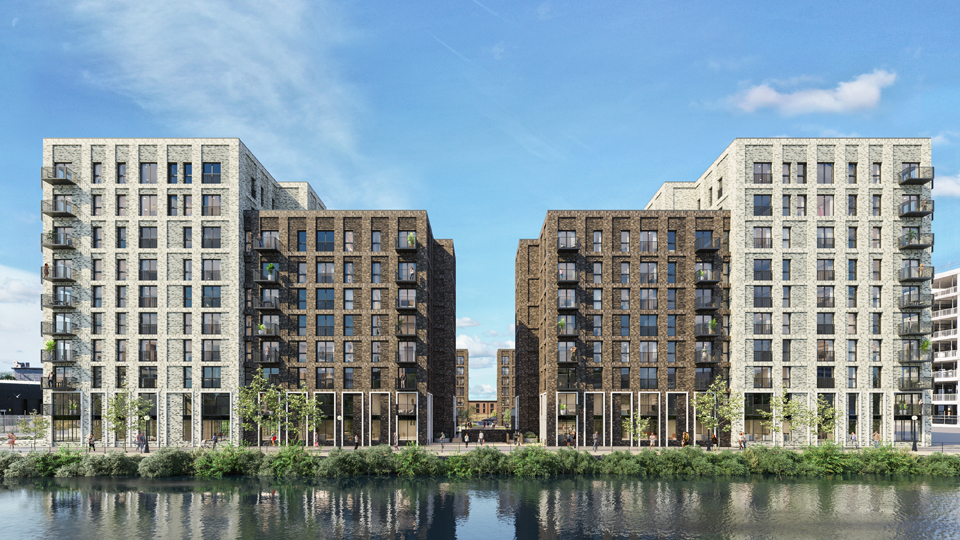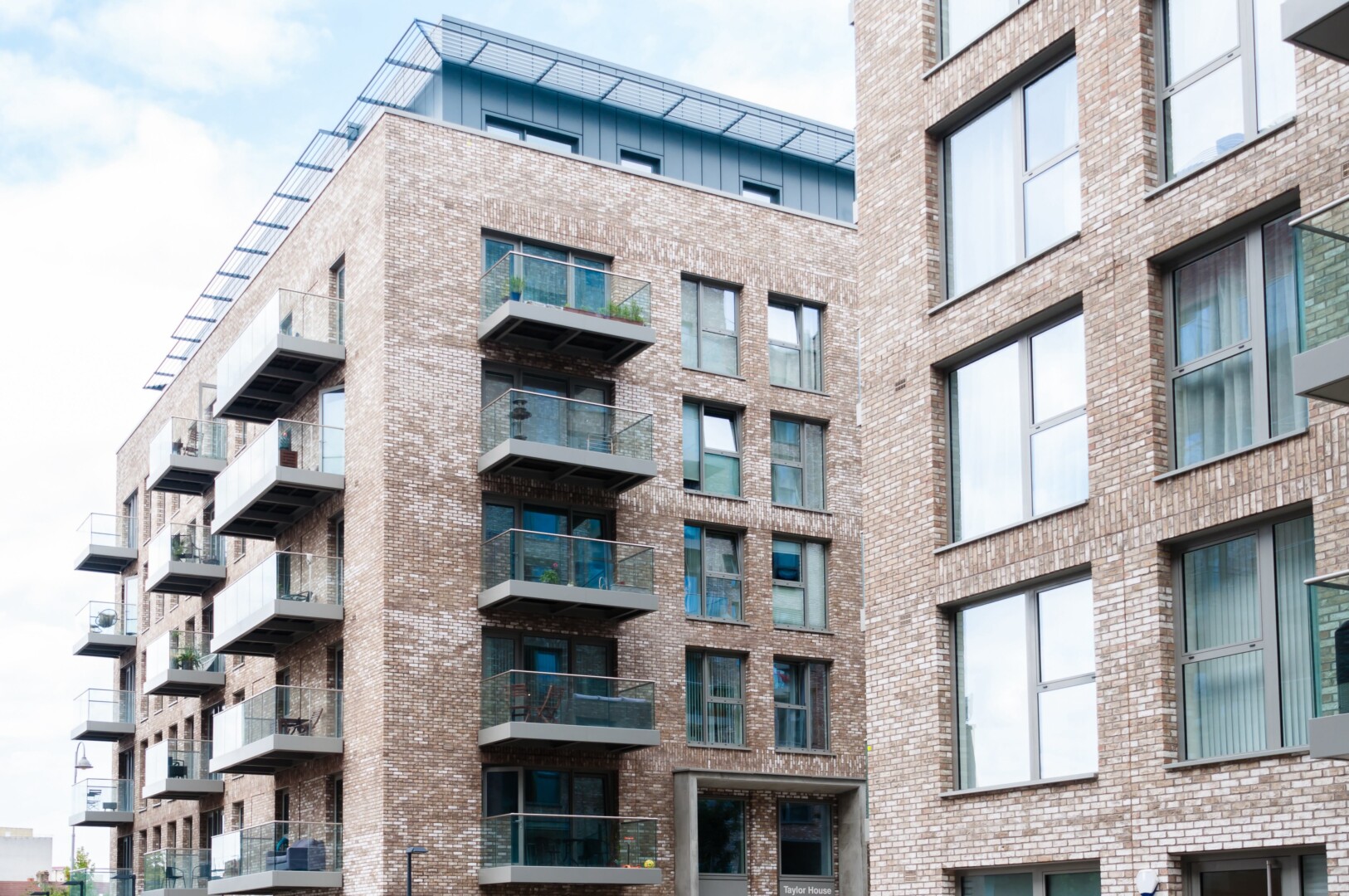If you’re looking to invest £100,000, not many income streams can beat the notable return on investment that real estate yields. This guide will cover common forms of investment and how they stack up in comparison to property investment, what properties are the most profitable, and ultimately how you can make your £100k investment count.

Property Investment Options: A Closer Look
Understanding your investment goals is crucial when making a £100k investment. Whether you aim to increase income, focus on long-term growth, or achieve both, your strategy will differ. Defining these goals helps you choose the right investment type — as well as property type if you decide to invest in real estate — and ensures your investment delivers the returns you desire.
UK properties can fall into several categories: buy-to-let, serviced apartments, student accommodation, off-plan developments, and houses in multiple occupation (HMOs).
Buy-to-Let Properties
One of the top property investment types, buy-to-let involves the purchasing of a residential property to then lease to tenants. Most types of property — from flats to townhouses — can be bought to let. Generally long-term assets, this type of property investment can serve as a constant income stream.
Some of the pros of this option include appreciating value over time, the possibility of tax benefits (such as maintenance and letting fees), and relatively steady income. It can also allow for more control over how the asset is managed, unlike stocks or bonds.
On the other hand, buy-to-let properties can generate high initial costs like legal fees, deposits, and any renovation or refurbishment costs. Other risks include market fluctuations and difficulties with tenants or vacancies.
Serviced Apartments
Investing in a serviced apartment is an alternative real estate opportunity that has significant advantages. Serviced apartments can include hotel rooms, assisted living properties, and holiday homes. One of the perks of serviced apartments is that they include maintenance services, allowing investors to avoid the hassle of managing daily tasks.
The pros and cons of investing in serviced apartments can vary depending on the category. For example, hotel room investment is exempt from stamp duty if the property is under £150,000. Investing in assisted living on the other hand affords an ROI that is not as susceptible to cyclical fluctuations. Lastly, one of the perks of holiday home investing is the provision of a possible location for future retirement.
Student Accommodation
Another steady form of investment, student accommodation comes in the form of halls of residence or houses or flats which can be privately owned or managed by a university.
Due to the high demand for student housing, landlords typically see stable occupancy rates, and the low supply of student accommodation means large potential for appreciation. Investors in student accommodation can boost their rental income by renting out multiple rooms and capitalising on regional variations in supply and demand.
Off-Plan Developments
Purchasing a property before completion, known as an off-plan development, can have several upsides for investors. These can include capital appreciation once the property is completed and the flexibility of purchasing price.
HMOs (Houses in Multiple Occupation)
HMOs are properties where multiple tenants rent individual rooms, each with their own tenancy agreement. Commonly found in student or shared accommodation, HMOs can be more profitable than single-let properties because landlords can charge per room, increasing overall rental income.
According to the British Landlord Association, HMOs can yield as much as 7.5%. Other reasons to invest in HMOs include the reduced income gap if a single tenant leaves the property, property appreciation, and the possibility of tax benefits.

Other Investments Compared to Property
In the UK, key investment types outside of property include business and equity investments, government bonds, and peer-to-peer lending. Business and equity investments offer high growth potential but come with volatility, while government bonds provide steady, low-risk returns. Peer-to-peer lending allows direct loans to individuals or businesses, offering higher returns but higher risk.
Now, let’s explore the pros and cons of these investments compared to rental property investing:
Business and Equity Investments
Stocks and shares offer the benefits of liquidity and easy trading. However, equity investments can come with large taxes when sold and, as a result, are generally considered volatile. Investing in a whole business exposes investors to even greater volatility. If the business encounters financial problems, the owners are personally liable.
Real estate investment offers a compelling opportunity for diversification. Compared to stocks and bonds, it often presents lower risks and can potentially yield higher returns, as noted by Investopedia. There are also possible tax advantages with real estate, as well as the opportunity for leveraging. Although real estate investments can require considerable initial capital, diversification of investment portfolios is important to mitigate risk.
Government Bonds
Government bonds are a low-risk investment option, known for their stability. Investors lend money to the government in exchange for periodic interest payments and the return of the principal when the bond matures.
Despite their reputation as a relatively stable, low-risk option, bonds are susceptible to inflation, and investing in them can lead to negative returns. Another considerable drawback of investing in bonds is that they lose value as interest rates rise.
In comparison, property tends to offer higher returns through rental income and capital appreciation. Property investments are also a hedge against inflation since property values typically rise in line with or above inflation. However, property is less liquid and requires more active management than bonds.
Peer-to-Peer Lending
Peer-to-peer (P2P) lending is a platform-based investment where individuals lend money directly to borrowers, bypassing traditional banks. P2P offers the potential for higher returns than traditional bonds, and, when invested through accounts like Innovative Finance ISAs (IFISAs), those returns can even be tax-free.
However, P2P lending comes with significant risks. Borrowers often have poor credit, making defaults more likely, and there’s no insurance or government protection for lenders. Additionally, P2P lending isn’t allowed in some regions, adding another layer of complexity.
In contrast, property investments offer a tangible asset and the possibility of long-term capital appreciation, but they require significant upfront capital and are less liquid. While P2P lending offers higher flexibility and short-term returns, property is generally considered a more stable and longer-term wealth-building strategy.

Why Choose UK Property with Alesco?
Although each investment option has its own affordances, investing in UK property is a highly promising course — especially for £100,000 worth of capital. Regardless of property type, real estate investing can provide a steady passive income stream and strong returns thanks to rising property values. As a tangible asset, property can also serve as a hedge against inflation. There are also tax benefits associated with property investment.
So, how can you find and invest in high-value properties without the hassle of competing buyers? That’s where Alesco steps in. With our exclusive portfolio of one-of-a-kind properties across London and the North of England, we’re here to connect you with ideal, affordable investment opportunities tailored to your goals.

Maximising Your Investment
Tips for Investing £100,000 in UK property
When considering how to invest £100,000 in UK property, diversification and strategic property choices are key. Here are some tips to make the most of your investment:
- Diversify Your Portfolio: Spread your investment across different property types (e.g., HMOs, serviced apartments) and locations to reduce risk and protect against market fluctuations.
- Consider High-Yield Properties: HMOs and serviced apartments, especially hotel rooms and student housing, offer higher rental yields due to multiple tenants or short-term stays.
- Leverage Regional Opportunities: Focus on areas in the UK with high rental demand and growth potential, such as parts of London and the North of England.
- Balance Risk and Reward: Be aware of the volatility and illiquidity of real estate, but mitigate these risks by diversifying your assets and carefully selecting properties with strong ROI.
- Explore Off-Plan Developments: Investing in off-plan properties can offer capital appreciation and flexibility at a lower upfront cost.
- Use Tax-Efficient Accounts: Consider tax benefits through options like Innovative Finance ISAs (IFISAs) or buy-to-let mortgages to maximise returns.
- Seek Expert Guidance: Consult professionals like Alesco to find hidden gems and navigate the complexities of property investment in the UK.
Understanding Risks and Rewards
Of course, there are risks associated with real estate investments. These can include volatility and illiquidity. However, you can take steps to reduce rental property risk.
Although volatility is lower in real estate investing than in other forms of investment, it can still be guarded against by implementing safety procedures such as diversifying your property portfolio as previously mentioned.
Other ways to ensure minimum risk are to analyse your internal assets and the properties in question. However, the risks must be balanced with the rewards. Depending on the region and the property type, the ROI on rental properties in the UK can reach over 8%.
The Alesco Advantage
Ultimately, the best form of investment is largely dependent on your goals as an investor, your assets, and the steps you can take to mitigate risk for whichever path you choose. As an investment option, property investment can provide a stable, high-return avenue for those with capital at or exceeding £100,000. Here, it can be extremely useful to refer to expert guidance.
Whether you’re seeking solely to add to your income or you’re also aiming to diversify your property portfolio, Alesco’s selection of hidden gems in the UK allows you to discover unique properties which accomplish both goals.
Reach out to our dedicated team to make an inquiry and discover our exclusive portfolio of available properties.

Written by: James Needham
Experienced Team Lead with a demonstrated history of working in the real estate industry.














